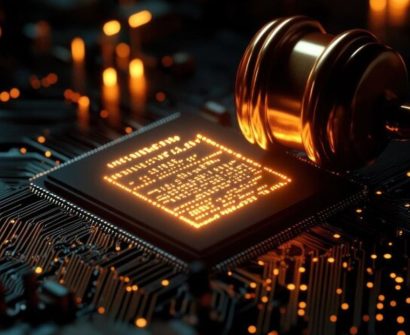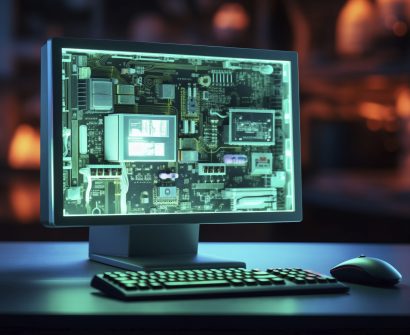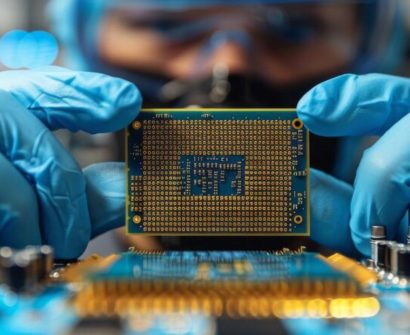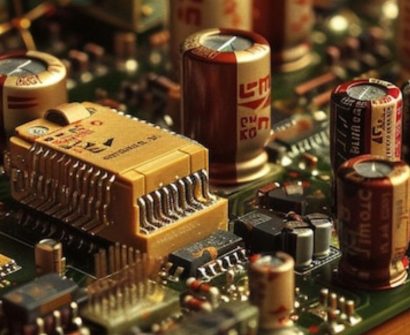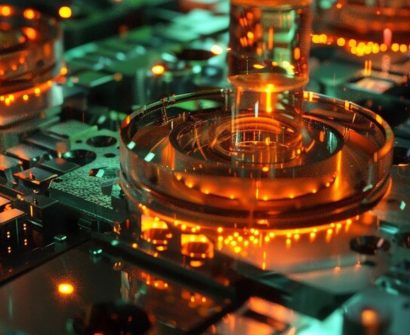The Multifaceted Applications of VLSI Technology in the Automotive Industry

The automotive industry has undergone a remarkable transformation in recent years, largely driven by advancements in technology. One of the key enablers of this transformation is Very-Large-Scale Integration (VLSI) technology. VLSI has found its way into almost every aspect of our lives, and the automotive sector is no exception. In this blog post, we’ll explore the various applications of VLSI in the automotive industry, highlighting how it’s revolutionizing our driving experience.
- Advanced Driver Assistance Systems (ADAS)
VLSI technology plays a pivotal role in the development of Advanced Driver Assistance Systems (ADAS), which enhance vehicle safety and driver comfort. These systems include features like adaptive cruise control, lane-keeping assist, automatic emergency braking, and more.VLSI processors are responsible for processing data from various sensors, such as cameras, radar, and LiDAR, and making real-time decisions to assist the driver in navigating the road safely.
- Infotainment Systems
Modern vehicles are no longer just means of transportation; they are also equipped with sophisticated infotainment systems. VLSI technology powers these systems, delivering high-resolution displays, intuitive user interfaces, and seamless connectivity to smartphones and the internet. It enables features like GPS navigation, voice recognition, music streaming, and even smartphone mirroring.
- Engine Control Units (ECUs)
Under the hood, VLSI technology is at the heart of Engine Control Units (ECUs). ECUs are responsible for optimizing engine performance, emissions, and fuel efficiency. With VLSI, manufacturers can create smaller, more efficient ECUs that respond rapidly to changing driving conditions. This results in more environmentally friendly and fuel-efficient vehicles.
- Electric and Hybrid Vehicles
The shift towards electric and hybrid vehicles has been accelerated by VLSI technology. Battery management systems (BMS) in electric vehicles rely heavily on VLSI for accurate monitoring and control of battery performance. Moreover, VLSI plays a significant role in motor control and power conversion in electric drivetrains, allowing for efficient energy usage.
- Vehicle-to-Everything (V2X) Communication
VLSI technology is a key enabler of V2X communication systems, which allow vehicles to communicate with each other and with infrastructure, such as traffic lights and road signs. This technology is vital for improving traffic flow, reducing accidents, and enabling autonomous driving in the future.
- Autonomous Vehicles
When discussing the future of the automotive industry, it’s impossible to ignore autonomous vehicles. VLSI technology is an integral part of the sensors and processors required for autonomous driving. These systems rely on VLSI for real-time data processing, enabling vehicles to perceive and respond to their surroundings, ultimately ensuring safe and reliable autonomous operation.
Conclusion
To know more about VLSI Course , SuccessBridge VLSI training institute. You can begin your VLSI career by enrolling in the placement-assisted live courses available at SuccessBridge We offer various VLSI online courses. We offer Physical Design course, Design Verification course, ASIC verification course , Chip design course many more. Explore VLSI Courses From The Leaders In VLSI Training
VLSI technology has become an integral part of the automotive industry, shaping the way we drive and interact with our vehicles. From advanced safety systems and infotainment to electric and autonomous vehicles, VLSI has revolutionized the road by enhancing vehicle safety, improving efficiency, and making driving more enjoyable. As technology continues to advance, the automotive industry is set to evolve even further, and VLSI will continue to be at the forefront of these changes. In the coming years, we can expect more innovations and breakthroughs that will make our vehicles smarter, safer, and more sustainable.

